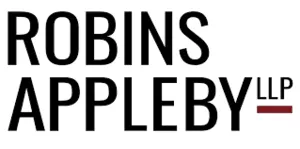- within Strategy topic(s)
- with Senior Company Executives, HR and Finance and Tax Executives
- with readers working within the Accounting & Consultancy, Banking & Credit and Business & Consumer Services industries
(March 25, 2022, 10:34 AM EDT) -- In the context of Canada Revenue Agency (CRA) audits, clients and lawyers often ask me, "Doesn't CRA already have the document they are requesting?"
This question is always laden with frustration. Being audited is already time-consuming and unnerving. To be asked for a document, return or form that has already been filed with CRA only adds to the frustration. Now the client must spend resources to try to source and produce an old document that it already spent time and money filing in the first place.
These document requests can add to the client's fear of the unknown. What could CRA possibly be looking for if they want to scrutinize a different copy of a document that they already have? In a world where privacy is so protected in almost all other contexts, audits can feel particularly invasive. Many taxpayers feel violated by the agency's broad powers to inspect every nook and cranny of their life as they seemingly attempt to discover a "gotcha" tax-filing moment.
Behind these concerns is an underlying question: "The auditor should already have the document ...shouldn't they?"
To answer this question, one must understand one thing: CRA is big. And when I say big, think HUGE. First, the sheer number of staff is immense — the website currently lists 42,000 employees. Second, these employees are sprawled out all across the country. The website states that there are51 local tax services offices and regional tax centres in every region of the country.
In addition to "official" offices, there are also people all over Canada who report to a CRA office while living and working from a completely different location (CRA had remote workers even before COVID made it popular; now, there are even more). There is also a vast number of different departments, divisions, groups and committees within the agency. Sometimes departments get moved, quite often they get renamed, new ones get added while others get merged. Finally, the turnover within departments is huge. People are constantly moving from one department to another.
Even the degree of specialization within certain groups can be surprising. I learned as much when working as a lawyer at CRA several years ago. While acting as secretary of a particular committee there, I realized that there were multiple people devoted to a single line item on a particular trust tax return. Had I not been on the committee, I would never have otherwise known these people existed in the agency.
Adding up all this volume, sprawl, change and specialization makes the co-ordination and unification of information across CRA extremely challenging. Each of those specialized employees dedicated to the single line item almost certainly never have cause to speak to the auditor who is seeking to peer into the taxpayer's history and reporting. I can almost guarantee not only that Jill Auditor has never met Joe Line-Item but also that she/he/they would not even know how to contact him/her/them.
So, why is someone at CRA asking for a document the taxpayer has already filed? Most likely, they are asking simply because: (a) they do not have it; and (b) the easiest, most direct way to get it is to ask the taxpayer.
This may not seem like a big revelation, but I hope it demystifies the audit process a little. By explaining different aspects of audits, I aim to lift the veil from the mystery that is CRA for taxpayers and their representatives. This should make audits a little less stressful and a little more amicable. In turn, this should help bring clients closer to the resolution they want.
Originally published by The Lawyer's Daily.
To view the article click here
The content of this article is intended to provide a general guide to the subject matter. Specialist advice should be sought about your specific circumstances.


